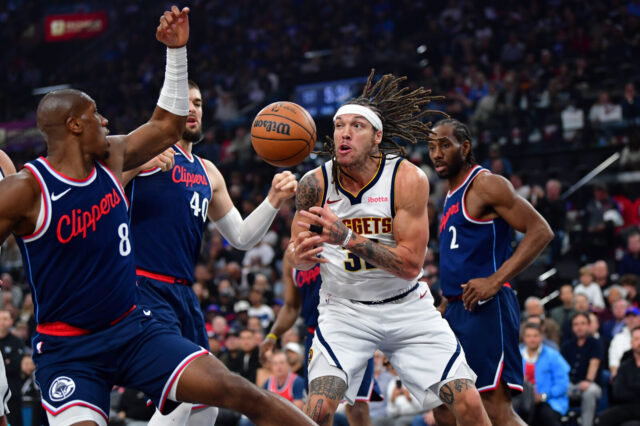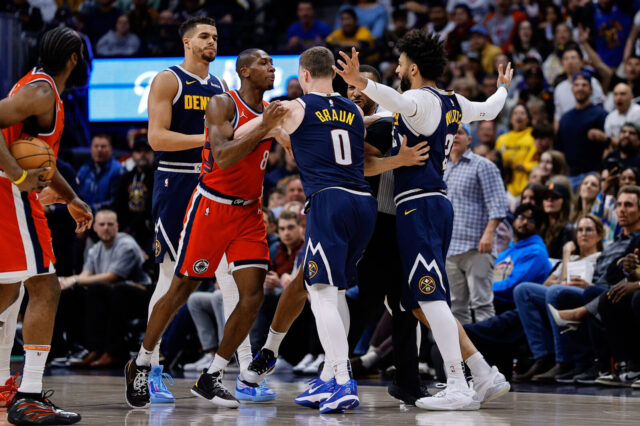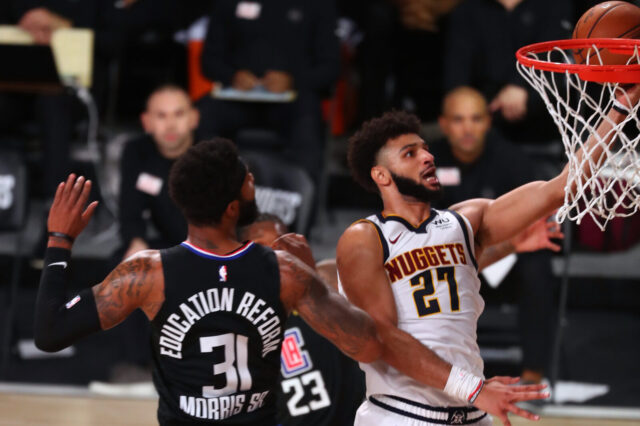Somewhere, George Karl, Jerry Sloan, Rick Adelman, Jeff Van Gundy, Doug Collins, Nate McMillan, Flip Saunders and other would-be / could-be championship coaches are cringing. Because Cleveland Cavaliers rookie head coach David Blatt just might do something in his first season that those coaches and their combined 5,385 regular season wins could never do in decades of coaching: win a NBA Championship. And if Blatt does indeed win a championship with his talent-loaded Cavaliers in 2015, by default he might prove something that many have known but few want to admit – of the four major professional sports in the US, the NBA just might be where coaching matters the least.
This isn’t to say that Blatt isn’t imminently qualified for the position or lacking in basketball intellect in any way. His story / resume is nothing short of amazing, having played basketball at Princeton for the legendary Pete Carril 35 years ago and then turning his love of the game into one of the greatest coaching careers in European basketball history. Having spent 31 of his last 33 years coaching overseas, Blatt most recently coached Israel’s Maccabi Tel Aviv to the Euroleague championship after defeating Euroleague powerhouses CSKA Moscow (semifinals) and Real Madrid (finals), both in overtime games. Prior to his latest tenure with Maccabi Tel Aviv, Blatt coached elsewhere in Israel in addition to Italy, Greece, Turkey and Russia. And in 2012, Blatt led the Russian national team (and the Denver Nuggets own Timofey Mozgov) to a bronze medal in the 2012 London Olympic Games.
So when Cavaliers owner Dan Gilbert decided in June to hire Blatt to coach the team – three weeks before LeBron James decided to return to Cleveland after taking the Miami Heat to four straight NBA Finals – those “in the know” of international basketball circles applauded the decision. And I for one am thrilled to see a complete outsider to the NBA getting a chance at perhaps the best coaching opportunity in recent NBA history. To me, the Blatt hiring is more exciting than the usual retreads who land in NBA head coaching positions year after year.
But does coaching really matter in the NBA?
As I’ve written ad nauseum here at Denver Stiffs, since 1980 only nine of the NBA’s 30 franchises have won an NBA Championship: the Los Angeles Lakers, Boston Celtics, Philadelphia 76ers, Detroit Pistons, Chicago Bulls, Houston Rockets, San Antonio Spurs, Miami Heat and Dallas Mavericks. But you could just as easily replace the names of the franchises with the names of the superstar players who delivered those titles … superstars so transcendent that only universally recognized nicknames or single names are needed to run down their NBA Finals wins vs. appearances since 1980: Magic (5/9), Kareem (5/8), Bird (3/5), Moses (1/2), Dr. J (1/3), Isiah (2/3), Michael (6/6), Hakeem (2/2), Duncan (5/6), Kobe (5/7), Shaq (4/6), D-Wade (3/5), Dirk (1/2), KG (1/2), The Truth (1/2) and LeBron (2/5).
And thus, it should be no surprise to the average NBA fan that only four active coaches can claim owning a championship ring: Gregg Popovich, Doc Rivers, Erik Spoelstra and Rick Carlisle.
But lets take a look at Popovich’s coaching record sans Tim Duncan and Rivers’ coaching record before he had Boston’s “Big Three” of Kevin Garnett, Paul Pierce and Ray Allen in their respective primes. After sandbagging removing head coach Bob Hill 18 games into an injury-riddled season in 1996 (despite Hill winning 62 and 59 regular season games in his first two seasons in San Antonio and taking the Spurs to the Western Conference Finals in 1995), Popovich coached the Spurs to a 17-47 record to finish out the 1996-97 campaign, which enabled the Spurs to land Duncan with the first overall pick in 1997. Since then, Popovich has never won less than 60% of his regular season games coached, has never missed the playoffs and has appeared in six NBA Finals, winning five. Given that Popovich also serves as the franchise’s vice president, perhaps he deserves more credit for co-assembling the team that he coaches than he does for his actual coaching, after all it was Popovich who had the foresight to draft foreign superstars like Tony Parker and Manu Ginobili to surround Duncan.
Rivers – lauded by many as one of the NBA’s best coaches today – had a coaching record of 273-312 before Celtics’ GM Danny Ainge pulled a 2007 summer coup and traded for Garnett and Allen to join Pierce in Boston. Under Rivers’ stewardship with the “Big Three” on board, the Celtics went from a 24-58 season in 2006-07 (which included a franchise record 18-game losing streak) to an NBA Championship just one season later and a second NBA Finals appearance in 2010, where they lost to Kobe Bryant’s Lakers in seven games. Did Rivers miraculously become a Hall of Fame coach, or did having the “Big Three” – plus an emerging star in Rajon Rondo and an assortment of great role players – make Rivers suddenly look like a coaching genius? Clearly Rivers’ current franchise, the Los Angeles Clippers, think he’s indeed a coaching genius because they’re paying him more than $10 million a year through 2018-19 while also giving him authority to make trades and sign free agents.
Spoelstra and Carlisle, conversely, while both being championship-winning coaches themselves have managed to produce plus-.500 playoff teams in just about every year they’ve coached, with the exception of Carlisle having one down year in Indiana and one down year in Dallas due more to injuries and talent depletion than any fault of his. But when given his own “Big Three” (including the aforementioned James) to coach, Spoelstra delivered four consecutive NBA Finals appearances including two wins. And Carlisle’s Mavericks defeated Spoelstra’s Heat to claim the 2011 NBA Championship with a superstar in Dirk Nowitzki surrounded by a terrific cast of role players helping along the way … but after those role players jumped ship to greener pastures and bigger dollars elsewhere, Carlisle hasn’t gotten the Mavericks past the playoffs’ first round.
For the record, I'm not the first to question the importance of coaching in the NBA. Many NBA pundits and followers much smarter than I have tackled the issue head on, including our friend Professor David Berri from The Wages of Wins Journal who has dug into the issue several times over the years from an analytic perspective. But by just about any measure, the NBA is clearly a players' league. A great coach – like Karl, Sloan, Adelman and others who have racked up countless regular season and playoff wins but have no rings to show for it – is certainly worth more wins in any given season than a crappy coach will produce. If not, Michael Cooper would still be coaching your Denver Nuggets. But at some point over the course of 82 games and two months of post-season, the team with a top-five player (or players) rises to the top of the NBA heap, almost in spite of whomever is manning the bench in a very expensive suit and tie.
So don’t be the least bit surprised if Blatt proves that next June, as LeBron James – together with perennial All-Stars Kevin Love and Kyrie Irving and a cast of solid role players with championship experience – lead the Cavaliers to their second NBA Finals appearance in franchise history. And when the Cavaliers do get to the NBA Finals, the Cavaliers will most likely meet up with Popovich’s Spurs or Rivers’ Clippers, two Western Conference teams that just so happen to have several of the NBA’s brightest stars and best role players on their rosters.
Which means we won't know whether or not Blatt is a great coach or not until he faces off against another "great" coach in the 2015 NBA Finals when, at least theoretically, the talent on both sides of the floor is relatively equal and championship worthy.


